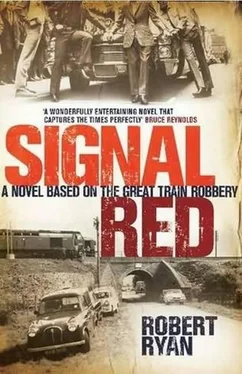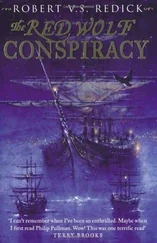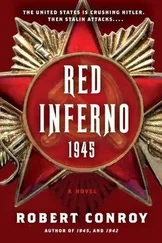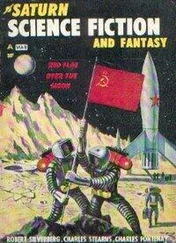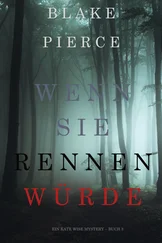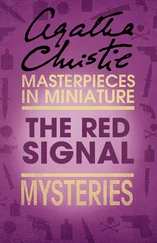As Bruce checked the human chain doing the unloading, Roger dropped one bag and struggled to retrieve it. Bruce took his place in line. 'Get in the lorry, and stack them,' he said.
'Right-oh, Bruce.'
'Where's Ronnie?'
'In the Land Rover with Stan.'
Bruce, not yet aware of the full story of what had gone on in the cab, said: 'Tell Ronnie to get out and help. Stan's done his bit.'
'Like fuck,' someone said, but Bruce ignored him. Whatever happened, the train was in place, the moneybags being unloaded, and there were no casualties on his side.
He carried on with the rhythm of grabbing the sack from Buster, turning and passing it to Tiny Dave Thompson. One- two-three-four, hup, one-two-three-four. Mindless repetition. It was just like being in the real Army. Except, judging by the number of sacks that kept coming in an apparently endless
stream, he was going to walk away from this richer than he ever dreamed possible.
Guard Thomas Millner sat at the rear of the train, bored. He had read his copy of the Daily Express from cover to cover and had flicked through Tit-Bits. He had enjoyed the article on Diana Dors and UFOs. He had seen a few strange things himself during his years going up and down the line, although nothing as spectacular as Miss Dors's cleavage. Now, though, all reading matter exhausted, he was keen to get home. There had been more stopping and starting than usual on the trip. There must be trouble, too, because the dials told him the vacuum had bled out of the system.
He waited a few more minutes, then climbed down and began to walk towards the front of the carriages. It wasn't until he was halfway along that he realised something was wrong and broke into a trot. There were only ten carriages. Somehow, the engine and the front two had gone on without them. He sprinted back, suddenly aware that he would have to put explosive warning charges on the line, as they were likely to be stuck for some time and he didn't want to be tail-ended.
As he ran, banging on the carriages to alert the sorters, he tried to think how it could have happened. He had never heard of a loco breaking free from its load before, not without the driver sensing something wrong. There was only one other explanation and that was just as ridiculous: someone had stolen the front of his train.
Frank heard a voice barking orders from the doorway.
'Pack it in! Time to go!'
'There's only a few left,' one of the breathless robbers inside the carriage protested.
'Leave them! We're pulling out.'
Frank sneaked a glance at his watch. Forty minutes they had been lying there, at least. It must be almost dawn. Probably why they were pulling out.
A few more minutes passed and two new bodies joined them. Jack Mills and his fireman. Whitby looked scared but unharmed; Jack was clearly in a bad way.
'Bastards.' It was Thomas.
One of the robbers strode over purposefully and Frank braced himself for blows. 'We're going to close the doors. Don't move for at least thirty minutes.'
They heard the man leave with one last shouted instruction. 'Anyone comes out, shoot them! Got that? OK.'
There came the stutter of vehicle engines starting, the high whine of reverse gear and the deeper note of the vehicles pulling out. There was no sense of urgency; they drove slow and steady and he could hear the rise and fall of the engines as the gears changed for quite a while before silence fell.
'You OK, Jack?' asked Thomas.
'Not too bad. Bit of a headache. They gave me a cigarette.'
'Everyone else all right?'
'Shush,' hissed Joe Ware. 'There's a bloke with a gun out there.'
'Bollocks,' said Frank. 'How's he going to get away?'
'Maybe he's got a motorbike,' Leslie Penn suggested.
'Could have,' agreed Thomas.
'But would you want to play British Bulldog out there?'
'Old Tom Millner must have raised the alarm by now,' said David. 'Even he must have noticed half his train's gone.'
'I'm going outside,' said Frank.
'Just wait a few more minutes,' counselled Thomas Kett.
Frank, furious that his carriage had been violated, struggled to his feet. 'They're going to get clean away.'
'Good luck to them,' said Whitby.
'What?' Frank asked.
'I mean… you know. I hope we don't see them again.'
Jack groaned.
'I'll get him some water,' said John O'Connor.
Frank crossed to the battered, twisted door and yanked it open. The remnants of the glass fell out of the frame and cascaded around his boots. 'Hello?'
He poked his head out and pulled it back in quickly. No bullets whizzed by. Then he did it again, letting it linger a little longer. The third time, he leaned right out, scanning up and down the track. In the strengthening light, he could see figures approaching from the abandoned part of the train.
'It's OK,' he said. 'They've gone.' He jumped down, then shouted back at the men inside. 'Come and give us a hand.'
'What are you going to do?'
'I bet they've cut the phones. We'll stop a train.'
Thomas Kett appeared in the doorway. 'What then?'
'Hitch a lift to the next station and phone the police. Sixteen, seventeen minutes they have been gone. They can't have got far.'
Bruce Reynolds had the VHF radio tuned to the police as they rumbled through slumbering villages and hamlets, taking their tortuous route back to the farm. There had been nothing on the airwaves, no mention of the robbery, and as they got closer to their hideout, Bruce's sense of euphoria grew. It wasn't over yet, so he forced himself to keep a cap on it. They had to unload the lorry, get the vehicles undercover, count
the money, and divide it into whacks and drinks. Hours of work.
Good work, though. The very best kind of work.
It was the type of job that would be spoken of with admiration for years to come, growing in the telling, knocked around in seedy pubs, clubs and spielers across London. It would be like Olivier in Henry V: 'And gentlemen in England now abed, Shall think themselves accursed they were not here, And hold their manhoods cheap whiles any speaks that fought with us upon St Crispin's Day.' Although no doubt someone would come up with a better name for this day than that. The Big Train Job or some such. But one thing was certain about those stories: he wouldn't be around to hear any of them. He would be long gone.
Bruce turned to the rear of the Land Rover, to where a group of tired but happy men had shed their masks and unzipped their coveralls. He grinned at them and began to whistle one of his favourite songs. Tony Bennett. Second only to Sinatra in his estimation.
It was a moment before they recognised it, and collapsed into laughter: 'The Good Life'.
Commander George Hatherill's first job of that day was to stay calm and try to make sense of the rumours and counter- rumours flying around Scotland Yard. He stayed in his office with the radio on and asked for the wilder speculations – the train was full of diamonds! – to be filtered out before they reached his desk. He had got into the Yard at seven-thirty. Three hours later he was given a copy of an exceptionally early edition of the Evening Standard that would go out that morning. The robbery had come too late for Fleet Street dailies; the Standard and the News had sensed a way to make
a killing by jumping into the breech. ROBBERY SPECIAL! it screamed.
£1,000,000! the headline thundered. BIGGEST EVER MAIL ROBBERY.
'Get Tommy Butler in here,' he instructed his secretary over the intercom.
'Sir.'
'And get me the Chief Constable of Buckinghamshire on the line.'
'Of course.'
He went back to the newspaper. The reporters had done a fine job, he thought begrudgingly. Midland, Lloyds and National & Provincial had all admitted to having money – 'many thousands' – on the train. The hacks had also contacted the Postmaster General, Reginald Bevins, who was on holiday in Liverpool – who on earth went on holiday to Liverpool? Hatherill wondered – and badgered the man into declaring a ten-thousand-pound reward. Well, it was a decent sum, enough to bring some rats out of the gutters.
Читать дальше
